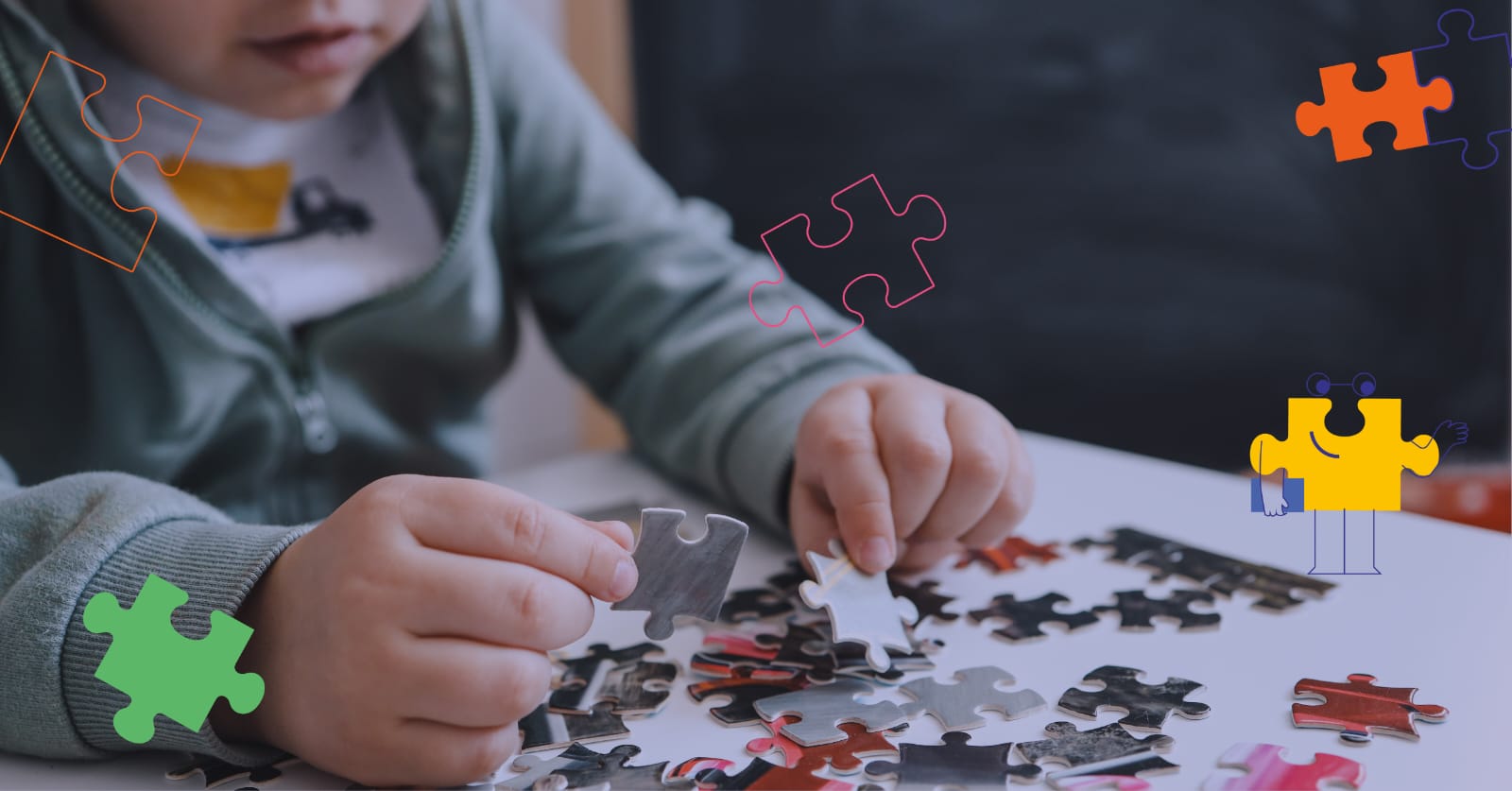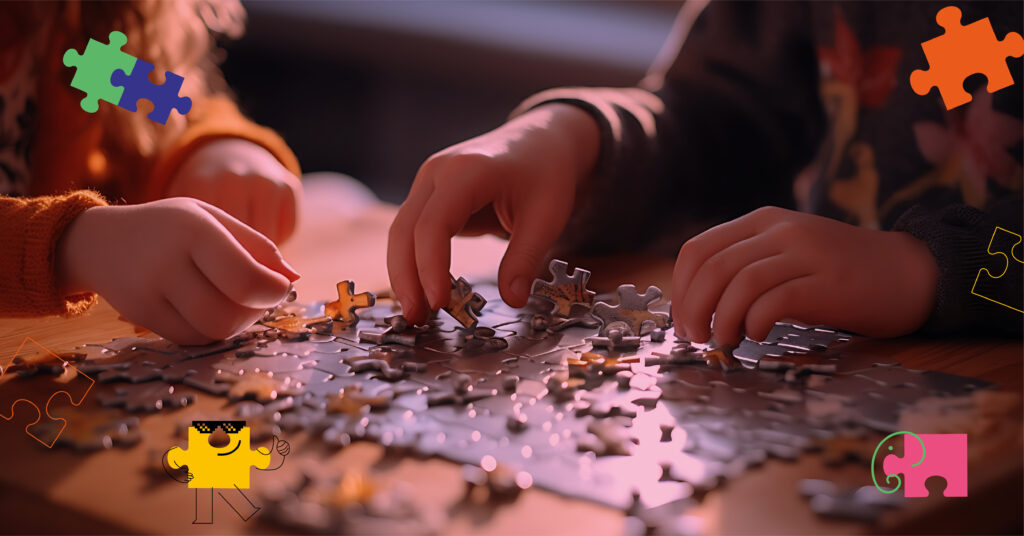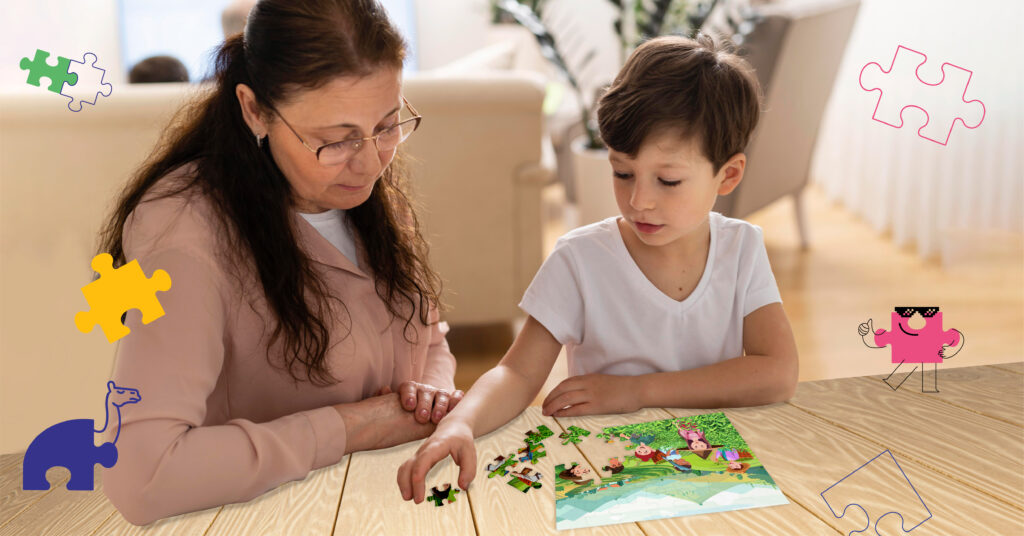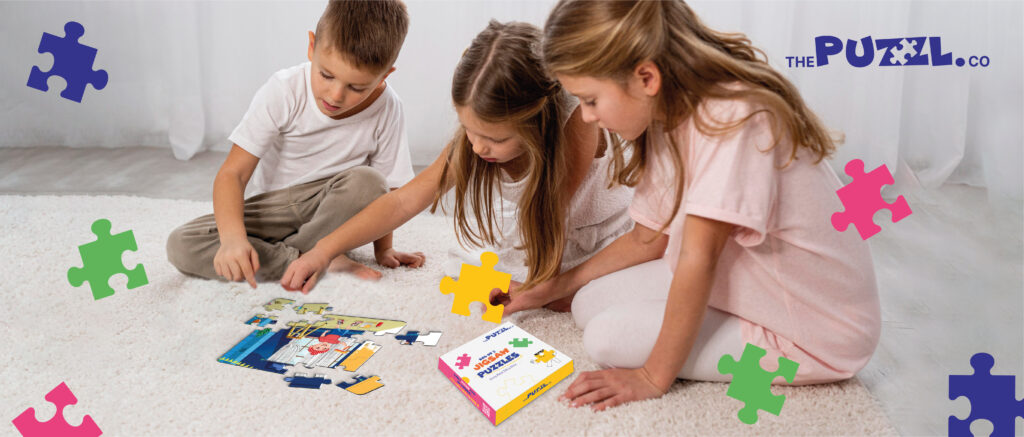Puzzles have been a source of entertainment for centuries, engaging people of all ages with their intriguing challenges and satisfying solutions. While many view puzzles as a fun pastime, they offer much more than just amusement. Jigsaw puzzles, in their various forms, provide numerous educational benefits that contribute significantly to cognitive development, problem-solving skills, and overall mental well-being. This blog delves into the multifaceted educational advantages of puzzles, highlighting how they go beyond mere entertainment.
Cognitive Development and Brain Exercise
Jigsaw Puzzles are excellent tools for cognitive development, engaging multiple areas of the brain. When you work on a puzzle, your brain is actively involved in searching, analyzing, and solving, which helps to enhance various cognitive functions.
- Memory Enhancement: Jigsaw puzzles, for example, require you to remember shapes, colors, and the overall image to piece together the puzzle. This exercise enhances both short-term and long-term memory.
- Spatial Reasoning: Solving puzzles improves spatial awareness and reasoning. Visualizing pieces, rotating them in your mind, and understanding how they fit together helps develop spatial intelligence.
- Problem-Solving Skills: Puzzles require a systematic approach to finding solutions. This process of trial and error, combined with logical thinking, enhances problem-solving abilities.
- Attention to Detail: Focusing on small details to ensure the correct placement of pieces fosters meticulousness and attention to detail.
Also Read : Puzzles Foster Child Development
Enhancing Critical Thinking and Patience
Puzzles encourage critical thinking and patience, vital skills in both academic and real-world settings.
- Critical Thinking: Jigsaw puzzles challenge you to think critically and creatively. They often require thinking outside the box and considering multiple solutions.
- Patience and Perseverance: Completing a puzzle can be time-consuming and sometimes frustrating. The process teaches patience and perseverance, as rushing through often leads to mistakes. Over time, these traits become ingrained and beneficial in various aspects of life.
Social and Emotional Benefits
Puzzles also offer social and emotional advantages, promoting collaboration and emotional resilience.
- Collaboration and Teamwork: Group puzzles encourage collaboration and teamwork. Working together to solve a jigsaw puzzle helps develop communication skills, cooperative behavior, and collective problem-solving strategies.
- Emotional Resilience: The sense of achievement upon solving a puzzle can boost self-esteem and confidence. Moreover, puzzles can serve as a healthy coping mechanism, providing a sense of control and satisfaction during stressful times.
Puzzles are far more than just a source of entertainment. They are powerful educational tools that enhance cognitive abilities, critical thinking, and problem-solving skills. They foster patience, perseverance, and teamwork, and provide emotional benefits that contribute to overall well-being. For children, they are invaluable in early development, and for adults, they offer a means to maintain mental acuity and reduce stress. By incorporating jigsaw puzzles into our daily routines, we can enjoy a fun activity while reaping significant educational and psychological rewards. So, the next time you pick up a puzzle, remember that you’re not just having fun – you’re also nurturing your brain and enriching your mind.



